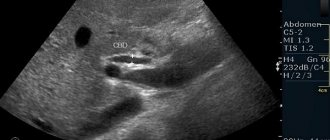Fetal freezing is a rare occurrence if the expectant mother is concerned about bearing a healthy baby. The small heart of the embryo stops beating for unknown reasons; a genetic or hereditary factor or physiological pathologies during pregnancy are possible. But in the early stages, will the test show a frozen pregnancy? Some women claim that these pathologies are diagnosed at home - different levels of the “pregnancy hormone” are noticeable. How to identify one of the manifestations of spontaneous abortion at home?
What is important to know about frozen pregnancy
Terminating a pregnancy by any means is a tragedy. It takes a long time for a woman to recover from shock and self-flagellation - what’s wrong?! Abortion doesn't improve your mood either. Fetal fading can occur at any stage, in this case doctors summarize:
- spontaneous miscarriage;
- spontaneous abortion;
- frozen pregnancy.
It is difficult to suspect something is wrong until bloody discharge from the vagina begins. But this is the main factor showing that it’s time to sound the alarm and rush to the antenatal clinic. Do not flatter yourself if the pregnancy is frozen - the test shows “two lines”; most likely, there was the same result before.
A fetus frozen in the uterus poses a danger to your life. A dead body begins a necrotic process; in other words, it is already beginning to decompose in the uterus. A miscarriage is a natural opportunity to “shed ballast,” which is life-threatening. You cannot lead to serious complications by postponing a visit to the gynecologist.
It is difficult to name good reasons, but most of our women are not “friends” with a women’s doctor. Many people prefer diagnosis and treatment with pharmaceuticals, and if the fetus is frozen, the test will show pregnancy. The hCG level (or human chorionic gonadotropin secretion) remains high for some time, so the tests are still “streaky.”
Why does this happen if fertilization occurred without problems? The process of embryo development is influenced by several factors:
- Physiological or natural causes;
- Genetic (hereditary predisposition to miscarriages);
- Mechanical (blow to the stomach, heavy lifting or other impact);
- Toxic (bad habits, the presence of toxic substances and drugs in the blood that are harmful to the fetus);
- Occult (negative impact on the intrauterine process through the power of thought or magical rituals).
As a result, in case of a frozen pregnancy, the test shows the norm, but there is a problem. It is impossible to independently identify the cause of fetal freezing, only hypothetically. One can have a different attitude towards science’s denial of generational curses and negative wishes that are not confirmed by medical practice. Women's forums are replete with evidence of influence from people who do not want to have a child. These could be envious people, mother-in-law or relatives with inheritance claims.
Attention: The only way for tests to indicate a frozen fetus is to check hCG dynamics. Tests will have to be purchased daily and the indicators noted. They will decline if the embryo has lost its viability! To do this, use only those indicators that show the level of “pregnancy hormone”.
About pathology
A frozen or non-developing pregnancy is a form of miscarriage. Unfortunately, it is not possible to save the fetus with such a diagnosis. The uterine cavity is cleaned out in one of two ways: surgically or by inducing a medical abortion. Most often, abnormal cessation of fetal growth and development occurs in women who are expecting their first child over the age of 30 years. Women over 40 years of age are most often affected by the pathology.
It is believed that unstable hormonal levels, as well as previous abortions, childbirth, and infections can affect the arrest of the baby’s development in older pregnant women.
Most often, according to the observations of obstetricians, pregnancy is terminated at 3-4 and 8-11 weeks.
It is during this period of gestation that the baby’s most important anatomical structures are formed; the embryo is very sensitive to external and internal influences. Another dangerous period for the likelihood of fetal death is 16-18 weeks, and experts still have not been able to determine what it is connected with.
A frozen pregnancy is dangerous for a woman. This is not only a deep emotional trauma, especially if the child was desired and long-awaited, but also a threat to physical well-being - sepsis may occur, and the woman may die.
If the dead fetus remains in the uterus for more than a month and a half and is not rejected by the woman’s body, a dangerous syndrome may occur in which blood thinning occurs inside the vessels. And bleeding, which is inevitable during the rejection of a dead fetus, is associated with a direct threat of death to the woman.
Risk groups for frozen pregnancy
Alas, sad women's statistics show that up to 10% of desired pregnancies will not end in the successful birth of a baby; in mature women, up to half of the cases. Not to mention abortion activities and careless attitude towards one’s health. The risk of developing pathologies increases with age, but it is already clear whether the test will show a frozen pregnancy, and what will happen if you do not rush to remove the consequences.
Risk statistics often include women who have had a series of abortions during their first pregnancy and subsequent conceptions. Girls who have been taking oral contraceptives for a long time may have problems. The body “out of habit” can reject the fertilized egg. If the fetus is frozen, a weak test will not show early pregnancy.
Rejection often occurs due to a conflict of Rh factors. For example, if the mother is Rh positive and the father is Rh negative or vice versa. In reality, young people are in no hurry to learn such “little things” and do not know about important things.
It happens when the expectant mother cannot say for sure who the father of the unborn baby is, for example, if she is promiscuous or dates several men at the same time, having sexual intercourse. Such frivolous ladies put themselves at risk, not thinking about what the test shows during a frozen pregnancy - they do not use them.
Important to know: The 8th week of pregnancy is considered the key moment; this is the most dangerous period in the development of the fetus - the most important organs begin to form. The risk does not depend on how many pregnancies there were before, the first or the fifth; sometimes women themselves do not know for sure if there were spontaneous failures in the early stages. The “8 weeks” stage is too susceptible to teratogenic influences, the likelihood of pathologies and fading increases.
In the early stages, the risk is greatest, at this time frozen pregnancies occur more often, what does a pregnancy test show? Doesn't say anything or signals a weakly positive "striped" result. But it needs to be compared with previous testing.
The main risk groups for frozen pregnancy are:
- Women who have had multiple consecutive abortions;
- “old-born” (after 30 years), young mothers and “first-born”;
- survivors of ectopic pregnancy and other pathologies;
- ladies with hormonal imbalances, as well as severe obesity, diabetes and other severe forms of metabolic disorders in the body;
- girls of the “youthful type”, with abnormalities of the reproductive organs and with an undeveloped “childish” uterus.
Doctors call this sad fact differently:
- Up to 28 obstetric weeks - called a missed or failed pregnancy, as well as a spontaneous (involuntary) miscarriage.
- More than 28 weeks after conception – antenatal fetal death.
Fetal freezing in the early stages is difficult to determine, so it is recommended to carefully monitor changes in the new “position”. For every woman at risk during a frozen pregnancy and at home, it is important to monitor what the test shows in the early stages. In each case, it is important to follow all medical recommendations and see your doctor.
Important: If you are offered to go to a gynecologist for preservation, do not refuse!
Read also
Most often, it is difficult to establish the exact cause that led to the development of this disease (each case is studied and considered individually), although doctors name several of the most common points. Among them:
- uncontrolled use of various medications, which include dietary supplements and vitamins, consumed by expectant mothers without consulting a specialist;
- viral diseases (flu, acute respiratory infections, acute respiratory viral infections, etc.);
- smoking;
- drinking alcoholic beverages during pregnancy;
- taking illegal drugs, etc.
5893 / 0
If intrauterine infection does not lead to termination of pregnancy and the baby is born safely, the following symptoms should make parents worry:
- early jaundice;
- rash of various types;
- respiratory function disorders;
- cardiovascular failure;
- neurological disorders;
- high body temperature in the first day of life;
- inflammatory (eg, conjunctivitis) and degenerative (eg, optic atrophy) eye diseases.
A frozen pregnancy is a real tragedy for many girls, especially if the conception was desired. A similar situation can occur at any time, but if it is detected too late, it is fraught with serious complications. How to prevent this, will the test show a frozen pregnancy, is it possible to somehow determine this pathological condition in the earliest stages - these are the main questions that arise for girls in such a situation. And we will definitely answer them.
It is best to carry out such a check in the morning.
Frozen pregnancy is always a terrible diagnosis, which doctors make when the development of the fetus has stopped due to any pathologies. Doctors call this condition a failed miscarriage, but if the miscarriage occurs after 28 weeks, then it is interpreted by gynecologists as antenatal fetal death. Experts still cannot say for sure why this happens. For some, the pathological factor is genetic disorders, for others - stressful situations, for others - taking medications and other pathological reasons.
Experts can determine the exact causes of a frozen pregnancy in the early stages after the fact with the help of thorough diagnostics, including histological laboratory examination of the fetal material. Ultrasound diagnostics will help to determine the pathology in a timely manner, because other methods in this situation, as practice shows, are powerless.
Usually the fetus freezes before 28 weeks, although the first weeks of gestation proceed according to the usual scenario. After fertilization, the egg is successfully implanted into the endometrium, and the patient herself experiences all the sensations characteristic of signs of conception, i.e. morning sickness, breast swelling, drowsiness, absence of menstruation, etc. A pregnancy test indicates the presence of an interesting situation, not yet In the body of a pregnant woman, all processes typical for her condition proceed normally. But suddenly a stoppage of fetal development occurs, which may go unnoticed by the patient. Why does this happen?
What are the signs of a frozen pregnancy?
You can’t look inside yourself - the independent possibility of determining the fading of the fertilized egg is minimal. You cannot do without a medical examination, and a lot depends on the timing. It happens that when everything seems to be fine, suddenly an ultrasound records the immobility of the embryo. A laboratory blood test shows a low hCG level, although it was high before and is normal.
It is difficult to understand in the early stages what is wrong with pregnancy, especially if it is the first. Let's figure it out if the pregnancy is frozen - what will the ultra-sensitive test show? For example, the hCG was 1650 units, after a few days the regular detector “does not streak”, but the electronic one displays a figure almost half as much.
The fertilized egg travels through the reproductive organs, but it is so small that the expectant mother is not able to feel it. The end of the journey of the fertilized egg is the lining of the uterus, the embryo is implanted for further development. But could he fail to gain a foothold? In all likelihood, yes. Where does the egg go then? Most likely, it dies, then it should erupt from the uterus with a little bleeding. This is possible after stress.
If you listen to the changes in your body, you cannot help but notice deviations. When few days have passed, the test does not always show a frozen pregnancy. For example, when a spontaneous miscarriage occurred, and the uterus cleared itself. The woman perceives this as a delay, “and now, finally, menstruation!” But it was a pathological pregnancy that did not reach its logical conclusion.
And it is necessary to check your hormonal levels, plus measurements of basal temperature to identify deviations after the days of ovulation. In the doctor’s office, you should discuss all your doubts, take all the necessary tests and show your temperature marks. In the 1st trimester, it normally remains at a level of 37.1-37.3°C. If your test shows a decrease in hCG, it means that the pregnancy has stopped.
Also, if in the 1st trimester a decrease in basal temperature is recorded, progesterone (the hormone responsible for pregnancy) drops, the doctor will draw the appropriate conclusions and decide what to do next. After a series of “delays”, which can be perceived as irregular periods, it is difficult to wait for a full pregnancy. At home, if the pregnancy is frozen, we know what the test will show - the hCG level will fall.
There are other reasons for serious concern:
- There are no sensations accompanying pregnancy, plus sanguineous discharge or bleeding, toxicosis suddenly stops (early term).
- Cramping spasms and pain in the lower abdomen, if a frozen pregnancy constrains the lower back, a temperature jump, the test will show changes in hormonal levels.
- During a hardware examination at the time of delivery, it is impossible to make a fetal cardiogram - the small heart has stopped beating.
- Colostrum and milk are released from the breast, which should appear when the uterus is “empty” (after the fetus is removed).
- The fetus stopped moving at a late stage.
There is no need to sound the alarm ahead of time, if there is one symptom, tests and ultrasound will show what is wrong with the embryo. Often, expectant mothers resort to antenatal clinics if an active baby “does not beat” in the stomach. There is a “Method of 10 movements”, the expectant mother can feel them from morning to 21:00. But it is quite possible that before this he was cramped, and now he lies down in a comfortable prenatal position - head down and just sleeping. Everything is fine!
What can lead to fetal development failure?
Fertilization occurs physiologically and without complications, but at some point the fertilized egg or embryo, and in later stages the fetus, lose their viability. A lot of different reasons can lead to this situation. Sometimes it is impossible to accurately identify the factor that led to the death of the fetus.
Gynecologists call a frozen pregnancy in the early stages up to 20 weeks, intermediate from 20 to 28 weeks, and after 28 weeks a failed miscarriage; after 28 weeks it is interpreted as antenatal fetal death.
The most common reasons that can cause pregnancy to fail:
- Early infections (influenza, ARVI, rubella, chickenpox).
- Use of medications.
- Chromosomal abnormalities.
- Bad habits of the expectant mother (alcohol, smoking).
- Venereal diseases.
- Diseases of the endocrine glands.
- Imbalance of sex hormones.
- Inflammatory processes of the gynecological profile.
- Uterine abnormalities.
- Age-related risks.
- Rhesus conflict.
- Stress, physical activity, working with toxic substances.
In gynecology, there are critical periods when one most often has to deal with pregnancy fading. These are 3 and 4 weeks, at this period it can end in miscarriage, 8–11 weeks and 16–18 weeks are also quite dangerous in this regard.
If such a disappointing diagnosis is confirmed, the woman undergoes curettage or artificial birth. If this is not done, intoxication will inevitably develop.
Another dangerous complication is inflammatory processes. If you do not remove the dead fetus, they will progress. As a result, emergency assistance from a surgeon will be required and the risk that in the future it will be possible to become pregnant and give birth again increases several times.
If appropriate measures are taken, the prognosis for the next pregnancy and childbirth is favorable.
If the pregnancy is frozen, what does the test show?
It is useful to monitor your condition with tests at home. This is not to confirm fertilization, but to see how the level of hCG in the urine increases or decreases. Will the test show a frozen pregnancy? We will already find out that yes. But the cheapest “striped girls’ friends” will not be suitable for this, only highly sensitive ones.
If the first electronic test gives an affirmative “pregnon” (pregnancy), and after a while, after the sudden cessation of toxicosis, it is already “non pregnon” (no pregnancy), consult a doctor immediately!
Advice: If there are prerequisites for pregnancy failure, ask the pharmacy for those sensitive test systems that show the level of hCG or its concentration in the urine. During fading, the level will drop daily, approaching zero. Removing a frozen fetus is an unpleasant ending, but it is necessary to save the woman’s life (the decaying embryo is poisoned with cadaveric poison). At the initial stage, abortion with medications is indicated, at the late stage - induction of labor. If the frozen fetus is small, labor should be stimulated early; curettage (under anesthesia) is applicable.
Do not be afraid of these procedures; if you have a frozen pregnancy, you need to cleanse the body of the dead body. And the sooner the better. No matter how many women ask on forums “whether the test will show if there is a frozen pregnancy”, with an unpleasant answer from the indicator, medical intervention cannot be avoided. Next, treatment is recommended in order to stop inflammation after curettage and bring hormonal levels back to normal.
It is advisable to know the reason for the failed attempt at motherhood in order to draw the right conclusions - get treatment and treat the next fertilization more carefully. If this happens, do not despair and stop trying; modern medicine helps even in the most hopeless cases, including surrogacy. A serious approach to childbirth guarantees the full bearing of a healthy baby. Take a break from your worries and try again!
The role of a pregnancy test
A pregnancy test determines its presence or absence by the level of hCG. In this case, the test strip reacts with urine. HCG is also present in the blood and this is confirmed by a blood test.
If the fertilized egg, embryo, or fetus dies in the early stages, hormones are not immediately removed from the body. In the first days after a frozen pregnancy, the test shows two lines, which means it will be positive. After some time, the test will show a negative result when the concentration of hCG decreases and completely disappears.
The longer the period, the longer the concentration of hormones in the blood and urine remains. Sometimes positive test results last so long that they give the woman hope and the right to doubt the diagnosis-sentence. The doctor must conduct the necessary examinations and explain to the woman why the test shows such a result. Reassure her for the future and help her survive this situation.
In the early stages
It is more difficult to diagnose a frozen pregnancy in the early stages, but the drop in hCG levels occurs quite quickly. If the test was positive, but after some time shows a negative result, a consultation with a gynecologist and an ultrasound scan is necessary. Additional signs of frozen pregnancy in the early period:
- Disappearance of early toxicosis.
- Decrease in basal temperature.
- Bloody vaginal discharge.
- The size of the uterus does not correspond to the term.
- The test shows a negative result, but before that it was positive (important - with an ectopic pregnancy this is also possible).
If a pregnant woman is worried about all these signs, she should visit a doctor. Based on an examination, a blood test for hCG and an ultrasound of the abdominal organs, a diagnosis will be made.
Sometimes a woman intuitively senses that something is wrong, and this prompts her to retest. She may feel changes associated with a missed abortion. If there was toxicosis - nausea, reaction to smells - it may stop. Swelling and soreness of the mammary glands disappears.
You may experience nagging pain in the back and abdomen, and bleeding. If the test shows a negative result, but was previously positive, you should urgently seek medical help.
Basal temperature drops (measured in the rectum in the morning, without getting out of bed). Those women who control their basal temperature will notice a decrease in it.
It is very important to differentiate between frozen and ectopic (ectopic) pregnancy, which can also show a negative test due to low hCG levels.
A woman's general condition may change if the fetus is frozen. Intoxication, fever, and general malaise begin.
In case of a frozen pregnancy, is the test result positive or negative?
Surely each of you has heard about a situation where the development of the fetus suddenly stops after conception. This pathology is called frozen pregnancy. A real tragedy for spouses who want a child.
And in any case, it threatens the woman with unpleasant and sometimes dangerous consequences. In this regard, the question often arises: will the test be positive or negative during a frozen pregnancy? Let's figure it out together.
Does the test always show a positive result?
No! Both positive and negative results are possible, and it depends only on the level of hCG in the urine. If it has not yet dropped to the minimum value that the test can react to, then you will see two stripes, but the second may not be clear.
Fetal freezing is a rare occurrence if the expectant mother is concerned about bearing a healthy baby. The small heart of the embryo stops beating for unknown reasons; a genetic or hereditary factor or physiological pathologies during pregnancy are possible. But in the early stages, will the test show a frozen pregnancy? Some women claim that these pathologies are diagnosed at home - different levels of the “pregnancy hormone” are noticeable. How to identify one of the manifestations of spontaneous abortion at home?
What it is
It is important to note that this unpleasant situation can occur both in the first trimester and later. In the first option, doctors position it as a failed miscarriage, in the second, if the miscarriage occurred after 28 weeks, as an antenatal death of the embryo.
This indicates more severe consequences in the later stages of the manifestation of pathology. What does a woman need to know? It is almost impossible to determine a frozen pregnancy without an ultrasound examination. As practice shows, all other methods are powerless.
And even the woman herself, even in the presence of pathology, experiences the same condition as during pregnancy without disorders. That is, she may feel nauseous, feel dizzy, have breast pain, etc.
Answering the question of how to determine whether a frozen pregnancy is present at a fairly early stage, I will say that there is no way! Instilling hope, I will add that most often the pathology is observed precisely during this period; after 28 weeks it happens extremely rarely. Will the tests be streaky if there is a frozen pregnancy? Yes!
How to determine pregnancy without a test
A modern woman wants to know about pregnancy as early as possible. Now there are pharmacy tests for this, so this can be done quickly, simply and inexpensively, but our mothers and grandmothers did not have such an opportunity, but they had the desire. Popular pregnancy tests saved the day. Experience about their use was passed on from mouth to mouth and, even if their reliability was low, women always had high hopes for them. Now there is no point in using them, but we will give an example of one such popular pregnancy test. A small container was filled with urine and a drop of iodine was dropped into it. If the drop began to blur, it means there was no pregnancy, and if the iodine remained on the surface, then most likely the woman was pregnant. Not a single doctor today, of course, will recommend that you rely on the result of such a test.
Theoretically, there are several other ways to determine pregnancy without a test. Please note that these are theoretical, since their reliability is very low. The fact is that pregnancy in the early stages has a number of manifestations, which can sometimes also be present in a woman who is not expecting a child. Therefore, the signs that we list are absolutely relative:
- delayed menstruation,
- nausea,
- breast tenderness,
- nagging pain in the lower abdomen,
- more frequent urination,
- irritability, tearfulness, drowsiness.
As you can see, all these manifestations also occur in women during premenstrual syndrome. Therefore, they can be used only, for example, to confirm two lines on a pregnancy test. But in no case should all these conditions be “written off” as pregnancy.
What contributes to the pathology?
Why does fetal death occur in the womb - anembryony? This question is asked not only by women themselves, but also by gynecologists who study the causes of this pathology. After all, as you know, it is important to exclude all negative aspects in order to avoid this tragedy the next time you conceive. So, a pregnancy test gives a positive diagnosis, but at the same time it turns out to be frozen. Why?
There are quite a lot of reasons:
- pathologies of the endocrine system and abnormalities associated with chromosomes, this group is the most common. Typically, disorders are detected early and result in fetal death;
- In the first trimester, infectious diseases were suffered, including chickenpox, rubella, and influenza;
- bad habits of women - smoking, alcohol, drugs;
- incompatibility of the Rh factor of the fetus and mother.
Other reasons are also known. For example, they may be associated with imbalances of hormonal substances in a woman, as well as with work in hazardous industries. Can pathology manifest itself if she experiences stress and physical exertion? Certainly!
Those who want to find out if the fetus has frozen, why the test will show pregnancy, and also find answers to questions about pathology, should carefully read the book “Pregnancy Loss” by Alexander Strizhakov and Irina Ignatko.
It also indicates not only possible causes of violations, but also ways to solve problems. Moreover, detailed features of fetal development and methods by which pathology can be detected are given. Reviews of the book say that the publication is useful for spouses who experience pathology more than once.
In the book you can find recommendations on the treatment and prevention of various complications present during pregnancy. And also find the answer to what to do if your first pregnancy is frozen.
Does the modern test show an ectopic or frozen pregnancy? Yes! I'll explain why now. The test is checked on urine, in which, in an “interesting situation,” a high content of human chorionic gonadotropin is detected. At the same time, the concentration of the substance increases day by day.
And this determines the reliability of female urine analysis during pregnancy: the longer the period, the more accurate the result. When freezing occurs, the production of a specific hormone stops, but it does not immediately disappear from the body. Therefore, the test still shows two lines for a long time, although the fetus is no longer viable.
How long does it take for the concentration to decrease? This is determined individually. Therefore, it is quite difficult to say what a woman’s urine test will show in a week or two.
Symptoms indicating the presence of pathology appear as follows:
- bloody issues;
- pain in the lower abdomen;
- chills, weakness.
It is clear that the test result will not help you with this, but if you regularly visit a gynecologist, he will definitely detect a pathology. The next step is to refer you for an ultrasound examination. And once the diagnosis is confirmed, the woman is prescribed cleaning of the resulting frozen pregnancy.
Olga Pankova explains whether a pregnancy test will be positive if the fetus has abnormal development. Her work is called “Frozen Pregnancy.”
The author explains in accessible language why this pathology haunts some women and bypasses others, what needs to be done in the conditions of modern medicine and how important it is to follow the advice of doctors. In addition, she tells why a woman’s pregnancy fails, among the reasons are those that were unknown just a few years ago.
Why does fetal freezing occur?
It would seem that fertilization has occurred, the embryo has settled safely in the uterus and has begun to develop. What must happen for a fetus to suddenly become nonviable? In reality, there are many reasons for this, such as:
- Endocrine pathologies and chromosomal abnormalities - the last reason for freezing is the most common (70% of cases). If fading occurs during the first 2 months of gestation, then it is inevitably associated with chromosomal fetal abnormalities. Such anomalies appear in very short periods of time, and almost all of them are absolutely incompatible with life, which is why development stops;
- Infectious diseases such as chickenpox, ARVI, influenza or rubella suffered in the first weeks;
- The mother’s unhealthy addictions to smoking, using drugs or alcohol;
- Disturbances in the balance in the content of hormonal substances produced by the gonads - with progesterone deficiency, the fetus is deprived of the ability to remain inside the uterine body and fully develop, androgen excess also prevents the development of pregnancy;
- Anomalies in the development of the uterine body or gynecological inflammation;
- The presence of Rh conflict between mother and fetus and the patient’s mature age;
- External factors such as employment in production with toxicogenic substances, increased physical activity or frequent stress overload and psycho-emotional experiences.
Gynecologists identify several critical periods of gestation, during which the likelihood of fetal fading is highest. These periods include 3-4, 8-11 and 16-18 weeks. If the pathology is confirmed, then the patient is prescribed curettage, and in the later stages, labor is artificially induced. These measures are inevitable, because if they are absent, the patient will experience fatal intoxication, including sepsis.
If the dead fetus is not removed from the uterine body in time, the progression of inflammatory processes will begin. Then only emergency surgery can save the girl. In such a situation, it is very difficult to say whether the patient will be able to become a mother in the future or not, because in severe forms of purulent-inflammatory processes she can simply have her uterus removed. Therefore, you need to be more attentive to your own feelings in order to notice deviations in a timely manner and eliminate the emerging problem without complications.
What to expect
Can a second or third pregnancy fail? Yes, because pathology is provoked by various factors. And when this happens, the scenario for further developments may be different. Doctors say that the best option would be the natural rejection of the frozen fetus by the uterus. But it happens rarely.
Almost always, gynecologists use curettage curettage. The procedure must be performed as early as possible, since a delay can have serious consequences. The dead fruit begins to decompose, releasing toxic products in the process. This inevitably leads to poisoning of the mother's body.
It is not difficult to predict what will happen next - long-term treatment after intoxication. In addition, the development of disseminated intravascular hemorrhagic dyndromy is quite possible. Both pathologies can be fatal. So, if there are violations, then conduct an investigation immediately.
Dangerous consequences
Dreams will definitely come true, don’t despair
Events resulting from the cessation of fetal development can develop according to several scenarios. The most favorable outcome is considered to be a spontaneous miscarriage, when the uterus itself rejects the frozen fetus. But this happens infrequently, so in most cases patients have to undergo curettage. If it is not carried out in a timely manner, the tissues of the dead fetus will begin to decompose and release toxic decay products, poisoning the mother’s body from the inside, which leads to dangerous consequences.
One of these consequences, and the most common one, is infection of the patient. It occurs if a girl puts off visiting a doctor for a long time. An aseptic inflammatory process begins in the uterus, which subsequently provokes the development of infection. In this case, the dead fetus acts as a dangerous source, emitting toxins and bacterial microorganisms, which, when leaking into the bloodstream, cause infection and the occurrence of septic processes.
There is also a high risk of developing disseminated intravascular hemorrhage syndrome (DIC), which is dangerous due to intractable and heavy bleeding. Both DIC syndrome and septic blood poisoning are equally dangerous and can be fatal.
One of the rarest, but still possible complications is lithopedion. This condition is associated with fetal fossilization, in which the deceased child becomes calcified with calcium salts. In such a state, the fetus can remain inside the uterus for quite a long time, up to several years, although the patient herself may not even know about it. In total, only about 300 cases of such complications are known, but the development of such events cannot be ruled out.
Can it be avoided?
I probably scared you, but, like all disorders in the body, you can try to prevent fetal freezing. But under one condition - if these are not the genetic characteristics of the body, which are difficult to fight with the desire to have a child alone.
Even if such deviations are detected, the woman is only identified as a risk group and the doctor monitors further developments. But with other reasons, you can successfully carry the fetus to term and give birth to a healthy baby. It is best to plan your “interesting position”; you need to do this about a year in advance to eliminate all risks.
The most useful actions include:
- rejection of bad habits;
- organic food, fruits and vegetables;
- active physical activity.
When planning a child, a girl is vaccinated against dangerous infectious diseases, and her hormonal levels are checked. The birth of a baby is a joy, but during feeding the nipples often crack, so I recommend a special cream “Gold Cream”. It has a wound healing effect and protects against infection. Completely harmless for the baby.
Is it possible to prevent fading?
If the reasons are hidden in genetic characteristics, then it is impossible to prevent fetal fading; by identifying such deviations, one can only determine that the woman is at risk. Otherwise, the girl is quite capable of preventing such a tragic development of events. The most effective preventive measure, not only in relation to ST, but also any other pathologies, is maintaining a healthy lifestyle, which involves a complete cessation of smoking, the use of drugs or alcoholic beverages. This also includes a healthy diet, including fresh vegetables, herbs and fruits.
Experts warn all girls who want to have healthy offspring - pregnancy needs to be planned. This is not a whim of doctors or a desire to rush patients around their offices. Today planning has become almost a necessity. As part of the planning, the girl receives the necessary vaccinations against dangerous infections (rubella, influenza, hepatitis, etc.), undergoes a course of treatment for extragenital acute or chronic infectious processes, and takes tests to check the state of hormonal levels.
In addition, even before conception, it is necessary to consult with a geneticist; it is especially important to do this for patients over 35 years old, as well as those who have had frozen pregnancies in the past or suffer from hereditary pathologies. Approximately 3 months before the expected conception, it is recommended that the potential mother begin taking folic acid.
It is also necessary to abandon artificial interruptions, which in subsequent pregnancies can provoke arrest of fetal development. Only a serious approach can guarantee the birth of a healthy child.
27 Jun 2020 okberemena 111
Frozen pregnancy, its signs and diagnosis
During a frozen pregnancy, fertilization of the egg occurs, but at a certain stage the development of the embryo stops. An empty fertilized egg can exist in the uterus for some time, after which it is rejected. Fading of pregnancy can happen both in very early and quite late stages. If this occurs after 28 obstetric weeks, this pathology is already characterized as fetal death.
There can be many reasons for a frozen pregnancy. Most of them are associated with poor heredity, previous sexually transmitted diseases, and the use of medications or alcoholic beverages. The risk of developing this pathology increases with a woman's age.
Diagnosing a frozen pregnancy is quite difficult. Only a specialist can do this. For a more accurate diagnosis, the ultrasound method is most often used. At the same time, there are signs that give reason to suspect the cessation of embryo development.
An alarming signal is a sudden cessation of toxicosis, a decrease in basal temperature, and bloody discharge from the genital tract may also appear.
Internal causes leading to pregnancy failure
The main reason for the fading of pregnancy may be the antagonism of the mother’s body towards the fetus. For example, with a negative Rh factor in the mother’s blood and a positive one in the fetus. In this case, the fetal protein is perceived by the introduction of a foreign body, and causes an immune attack from the mother’s body.
In conclusion, let us remind you that not only heavy lifting and constant stress, but also work associated with hazardous work can lead to a missed pregnancy.
https://youtube.com/watch?v=FBNlO0BMvhA
Noticed a mistake? Select it and press Ctrl+Enter to let us know.
What does the test show during a frozen pregnancy?
During a normal pregnancy, a standard home test should show 2 lines. This is a sign that fertilization has occurred, the embryo is developing and the body produces human chorionic gonadotropin. It is the increase in the concentration of hCG in the urine that underlies the principle of the test.
The concentration of the hormone in the urine increases every few days. The longer the pregnancy, the more reliable the test result should be.
When embryo development stops, the body stops producing a specific hormone, and its concentration in biological fluids begins to gradually decrease. The rate of decrease in concentration is individual for each case. It may depend on various reasons.
Immediately after embryonic development has stopped, the test will still show a positive result if the concentration of hCG in the urine was sufficient to determine pregnancy. If at the time of pregnancy the pregnancy was very short, after 2-3 days the test will show a negative result.
If embryonic development stops at a later stage, time is needed for the concentration of human chorionic gonadotropin to decrease enough for the test to show a negative result. In medical practice, there are cases when a rapid analysis gives a positive result even within a month after the death of the embryo and its rejection.
Experts assure that a positive test value cannot serve as a guarantee that the pregnancy is developing normally. If you experience any alarming symptoms, you should consult a doctor.
Symptoms
The pathology does not have any specific symptoms. If the baby’s development stops at an early stage, this can be indicated by a decrease in basal temperature and the disappearance of signs of pregnancy: toxicosis, tension in the mammary glands. Usually, 2-3 weeks after the death of the baby or earlier, the body begins to reject the fetus, this is accompanied by an increase in body temperature, chills, the appearance of blood discharge from the genital tract, nagging pain in the lower back and lower abdomen, turning into cramping pain.
Does the test show a frozen pregnancy?
I want to share my story! For some it may seem trivial that every second person waits for long years for a miracle! But it’s better that I waited for my Son for so long than to go through what I did. Continue reading →
GIRLS DOES THE TEST SHOW A FROZEN PREGNANCY? Continue reading →
In case of a frozen pregnancy, the test shows this. Continue reading →
Does the test show a frozen pregnancy? Continue reading →
My story is this: after 10 years of long agony, I finally got pregnant. On October 16, I took 7 tests. everyone showed 2 stripes, my happiness knew no bounds. Then I bought a test. which shows pregnancy by week, the result is +1-2 weeks. On Friday I went to donate blood for hCG, the result was 86, I was told to take hCG again on Monday, I donated it, the result was 266. Continue reading →
My first diary entry. I managed to read a lot of your stories, girls, and I thought that it would be nice to write my own, in case it helps someone too, or at least reassures me, which is probably the most important thing in our situation! Let me start the story by saying that everyone is a gynecologist. Continue reading →
My first pregnancy went without complications. Since I, 8 years old, with my first husband, could not get pregnant, then having gotten married a second time, after two months of marriage, I did not believe my eyes when, on the second day after the delay, I held in my hands a test showing the coveted two stripes) )) Then tears of joy, then seven more tests)))), the first ultrasound, heartbeat, screenings. and now I finally gave birth)))) The baby was born healthy, to the delight of mom and dad, now he is already a year old))) And everything would be fine. if. not the second pregnancy(((. Read more →
I want to share my story))) For impatient girls like me) I am pregnant, for the second time, the first pregnancy ended sadly (frozen pregnancy at 9 weeks). And now my long-awaited, second pregnancy has arrived!!) I was really looking forward to this, and seven days before the delay my nipples began to hurt (not at all much), this is strange for me, because after the cancellation, ok, this shouldn’t happen)) I was told that ovulation tests are very sensitive and show pregnancy very early (they are very sensitive to hCG)! How do I feel? Continue reading →
1. How does a pregnancy test work? All pregnancy tests operate on the same principle - they recognize a special hormone called human chorionic gonadotropin (hCG) in urine (tests for home use) or blood (laboratory tests). It is produced only during pregnancy. A non-pregnant woman simply cannot have it. The level of hCG in the body from the moment the fertilized egg attaches to the wall of the uterus doubles approximately every 2-3 days and reaches a maximum by 7-12 weeks of pregnancy. Its presence in blood and urine remains approximately. Continue reading →
The period is very short, the tests are still weak, but all the signs are already creeping out. We are happy, but one thing... the uterus tenses periodically, it seems to me. This is what frightens me. Today I try to lie down more, drink noshpa, and suppositories with novocaine (the goddess said). The first pregnancy was frozen, the second was my daughter, so they wanted another baby doll, and then the test later streaked, only on the 6th day of the delay, and it was weak at that. Plus the uterus is bothering me. I’m kind of scared ((((((((((((((((Thank you EVERYONE, the main thing is definitely the attitude. )))I’m already trying! I took a test in the morning, 1-2 weeks of pregnancy shows, so the truth is most likely that the baby is attaching) so))))) Read more →
Probably every woman, pregnant and not only, has heard about hCG. Some, especially those who passionately want to become a mother, run to get tested for hCG almost at the first apparent signs of pregnancy, while others calmly enjoy life and wait for doctor’s appointments. Indeed, the hCG level can say a lot about your pregnancy, but what can I say, it is thanks to hCG that you find out about it when you do the most common pregnancy test. What is hCG - decoding hCG is a hormone produced immediately by the chorion of the embryo. Continue reading →
Girls, I have one thought that won’t leave my head, or rather something unclear. It’s clear that I’m afraid of a second ectopic and probably this is against the backdrop of this fear. So, who has had this sad experience, or just thoughts about this, girls, tests with an ectopic pregnancy they begin to show earlier than a uterine pregnancy. Continue reading →
Girls, we need support. I really want a child and look with envy at pregnant women and mothers with children. We started planning our pregnancy in May 2013. We tried for 7 months to get pregnant on our own, without going to the doctors, but nothing worked. Then we went to the doctors, I passed all the tests, everything was fine with me, there was only a slight inflammation, which I successfully cured, my husband is doing well. The only thing that bothered me was the short cycle, my cycle is 20-21 days. Doctors said that because... so menstruation so. Continue reading →
Good afternoon, I’m new here, so there will be a lot of letters, don’t judge too harshly. My first pregnancy occurred at 25 (2015), right on my birthday I found out that I was 5 weeks pregnant. happiness knew no bounds. At 8 weeks, as I thought, I went. Continue reading →
How to identify?
To detect a frozen pregnancy, it is enough to perform an ultrasound. This type of diagnosis quite objectively and accurately indicates signs of lack of development: there is no heartbeat, motor activity of the fetus, its growth does not occur according to the gestational age according to the date of the last menstruation. An important diagnostic method is a blood test for hCG - this hormone is produced by the chorionic villi of a living fetus immediately after implantation.
As already mentioned, human chorionic gonadotropin, better known to women as hCG, is produced by the membranes after implantation, approximately doubling in the body every 48 hours.
Before the death of the embryo or fetus (depending on the period at which the death occurs), human chorionic gonadotropin can be produced at a completely normal pace, without causing concern among specialists. However, from the moment the fetus dies, the production of the new hCG hormone stops.
For a while, hCG “gets stuck” at one level, and then begins to gradually decrease.
At the same time, the level of progesterone decreases, since the corpus luteum, which produces it, remains without the hormonal support of hCG.
The corpus luteum is formed after ovulation at the site of the burst follicle, and its viability immediately after implantation and up to 12-14 weeks of pregnancy is ensured by the high level of hCG. Then the formed young placenta takes over endocrine functions. When the minimum level of progesterone is reached, the level of estrogen increases and the physiological rejection of the endometrium begins along with the fertilized egg from the uterus: bleeding begins, spontaneous abortion begins.
Assessing the dynamics of hCG with tests and blood tests
All pregnancy tests are based on detecting elevated levels of hCG in the urine. As soon as the amount of the hormone begins to exceed the sensitivity threshold of the test system, the test shows two stripes - a positive result.
Considering the peculiarities of the “behavior” of hCG after the fetus has stopped developing and died, it should be understood that the test will remain positive for a long time.
Even the highest quality electronic and digital tests only determine an increase in the level of hCG, without giving the slightest idea about its exact quantitative content, about the dynamics of growth or decline in the level. If the fetus dies at the earliest stage, even before the delay of menstruation, the test may remain negative (the hCG level has not yet reached the sensitivity threshold) or weakly positive (the second line is pale and indistinct). It is noteworthy that in this case, even after a delay, the test will show a negative or weakly positive result for quite a long time. The latter will gradually become negative. There will be no periods.
If the fetus dies at a later stage - after the woman has received a clear positive test, then the strips will remain positive not only until the onset of fetal rejection, but also for some time after cleansing or medical abortion, which doctors will use to remove it from the uterine cavity dead fetus.
HCG decreases quite slowly.
Therefore, we can safely say that tests cannot show the fact of a frozen pregnancy, which cannot be said about blood tests for hCG.
If according to them (carried out over 48 hours several times) there is no increase in the hormone level or there is a decline, then the doctor will first of all assume that the pregnancy is not developing and will prescribe an urgent ultrasound to confirm or refute his assumptions.
Some also wonder whether there is an increase in hCG after developmental arrest and fetal death. In rare cases, this is possible, experts believe, but solely due to the fact that the chorion is not directly affected by the factors that caused the death of the embryo.
In this case, the villi can theoretically produce a certain (small) amount of hCG for another 2-3 days, and then the inevitable decrease in the level of this substance begins.
Frozen pregnancy is one of the manifestations of abortion. This situation can arise at any stage of gestation. Delayed detection of this pathology can lead to serious complications. Can a pregnancy test clarify the situation?
What does the test show during a frozen pregnancy?
Beauty Health
Content
Frozen pregnancy is a terrible diagnosis, which is a consequence of pathological development of the fetus. Why and in what cases this happens – there is no clear answer. In some cases, the genetic factor becomes decisive; in other situations, the course of pregnancy is influenced by stress, physical impact, medication, etc.
Only a doctor guided by ultrasound data can make a diagnosis. Other diagnostic methods may not be effective long after the incident.
What causes pregnancy to fail?
Fetal death during pregnancy can be caused by various reasons. There are exceptions when the embryo dies absolutely for no reason in the body of a healthy and young mother leading a healthy lifestyle. This happens and is called natural selection.
***
Possible “provocateurs” of fetal death include:
- disruptions in the hormonal system;
- genetic disorders;
- infections and inflammations;
- not of childbearing age;
- artificial insemination;
- autoimmune conditions;
- bad habits;
- immunological factor;
- unfavorable environment;
- history of abortion.
There are many reasons for this condition to occur.
- bad heredity
- venereal diseases suffered in the past
- use of prohibited medications, alcoholic beverages or drugs during pregnancy
- first pregnancy in adulthood
With a properly developing pregnancy, a regular home test should show two lines. This is a sign that fertilization has occurred, the development of the embryo and the body’s production of a special hormone, hCG, which underlies the operation of the rapid test. The constant increase in hormone concentration makes home testing more and more reliable every day. But when its production stops, the concentration of hCG in a woman’s biological fluids begins to decrease. This happens gradually, and it can take quite a long time for the element to completely disappear.
Immediately after the development processes are suspended, the test will show a positive result, especially if the pregnancy has already lasted several weeks. If at the time of the incident the period was too short (3-6 weeks), after a day or two only one strip will appear in a special window.
If the fetus stops developing late in pregnancy, it will take a long time for the pregnancy hormone to leave the woman’s body. Only after the hCG level has decreased can a negative test result be obtained. The practice of obstetricians shows that in individual cases, an express test can show two stripes for another month after the death of the embryo, its rejection and gynecological cleansing.
Doctors strongly recommend that women regularly visit the clinic during pregnancy so that a specialist can assess the general condition of the mother and her unborn child, monitor the growth process of the embryo (and then the fetus), conduct the necessary studies, and make recommendations. If any alarming signs occur, you should immediately consult a doctor, because the home test is not an indicator of normal intrauterine development.
By what signs can one suspect a pathology?
No woman is immune from possible pathologies
The danger of ST is that such a condition can go unnoticed by a woman for quite a long time; at first, even rapid tests will show two distinct lines. Problems with the timely diagnosis of such pathological pregnancy can be easily avoided if the patient goes to gynecological examinations in a timely manner and takes the prescribed tests. It is the obstetrician-gynecologist who will be able to detect the discrepancy between the gestation period and the parameters of the uterine body, and ultrasound diagnostics will show the absence of a heartbeat in the fetus.
Usually frozen appears the same at any stage of gestation. The patient begins to be bothered by bloody marks on her underwear, a nagging painful discomfort appears in the lower abdomen, and hyperthermic reactions occur with fever, chills and weakness. Indicates a stop in fetal development and a sudden cessation of toxicosis and enlargement of the mammary glands. If a girl previously kept basal charts, then with ST she will find a noticeable drop in basal thermodynamic indicators.
Unfortunately, a pregnancy test cannot always show deviations in the gestation process, because it is usually done immediately after a delay, when the embryo is still alive and fully developing, although sometimes during express diagnostics an ectopic pregnancy can still be suspected.
Fading test results
Positive (two stripes)
If a doctor diagnoses miscarriage and the test shows two lines, this usually means the following:
- Misdiagnosis. If you incorrectly determine the date of conception, then there may be confusion in the indicators when analyzing hCG.
Reference! During pregnancy, the doctor constantly monitors the level of hCG in the blood, and if the level of the hormone decreases sharply, then such a diagnosis is made. However, it is not always confirmed.
- Too little time has passed since the freeze. The hormone stops being produced, but its content in the blood and urine is still sufficient for the test to show a second strip. On average, hCG is cleared from the body within a week.
Negative
If during pregnancy the test stops showing the second line, immediately go to the doctor. This means the cessation of hormone production and its complete or partial removal from the body, that is, the fading of fetal development.
Dynamics of test behavior
When a pregnancy is planned, the woman, of course, expects that there will be a delay and positive fertilization will occur. You can’t wait to find out the results, so you can resort to a highly sensitive test. Such a product can detect pregnancy within the first week.
In case of normal delay, when there is a suspicion of conception, it is also more convenient to use a quick determination. Conventional tests show a positive result already on the twelfth, fourteenth day after conception.
The procedure should be carried out in the morning and preferably on an empty stomach. Test strips drop material, literally for a minute: either one strip or two. Electronic tests show whether you are pregnant or not.
The following factors may influence a false indicator:
- incorrect timing;
- errors in dough storage;
- individual characteristics of a woman’s body;
- A pregnancy test can show pregnancy within a couple of months after birth, because hCG persists;
- taking certain medications, especially diuretics;
- ovarian tumors;
- expired product shelf life.
If the rules are followed, the test results are reliable. The only thing is that they do not detect ectopic pregnancy and cannot show the exact death of the fetus.
When planning a pregnancy or if there is a delay, the most reliable and fastest way to determine the exact position is to donate blood for hCG and contact a gynecologist for an ultrasound. Tests as an alternative are quite suitable. They are easy to use, affordable and quickly show results. But unfortunately, it is impossible to find out about the course of pregnancy and the position of the fetus.
In any case, you need to undergo an examination to make sure that everything is fine with the health and the embryo, in case of a positive conception. And for nine months, carefully monitor the child’s development in order to learn about any changes in time.
Carrying out the test
It is important to carry out the test correctly, otherwise there is a high probability of a false positive or false negative result. This will directly affect the decision to visit a gynecologist. The test algorithm for a frozen pregnancy is as follows:
- First you need to choose the “right” test. The shelf life should be sufficient; it is also recommended to check the storage conditions of the copy or provide them yourself if an old test is used. Otherwise the result will be false (negative).
- The test is recommended to be carried out in the morning, always.
- The result is evaluated based on the instructions for the instance. It is important to compare the results of the pregnancy test and the basal temperature measurement data. If the latter indicator is 37 degrees or higher, and the test is negative, then with a high degree of probability we are talking about a frozen pregnancy.
A pregnancy test for diagnosing a frozen pregnancy is a very controversial tool. It is only good for confirming the results of an already completed diagnosis, and even then not always. This is something to keep in mind. A whole system of indicators is assessed; just one test is not enough. If you have any suspicions, it is recommended to contact an obstetrics-gynecologist immediately.
Fetal freezing is a rare occurrence if the expectant mother is concerned about bearing a healthy baby. The small heart of the embryo stops beating for unknown reasons; a genetic or hereditary factor or physiological pathologies during pregnancy are possible. But in the early stages, will the test show a frozen pregnancy? Some women claim that these pathologies are diagnosed at home - different levels of the “pregnancy hormone” are noticeable. How to identify one of the manifestations of spontaneous abortion at home?
What to do during the recovery period
Use the break in pregnancy planning recommended by doctors wisely. Visit a sanatorium, review your diet and walking regimen, do as much physical exercise as you can, and teach yourself to lead a healthy lifestyle without smoking, alcohol, or other bad habits. Additionally, be sure to make time for:
- taking tests;
- endocrine system examinations;
- checking hormone levels;
- treatment of infections and inflammations.
Be sure to take time to strengthen your immune system and choose the appropriate vitamin complex. During the recovery period, use reliable contraception (avoid the IUD due to the risk of ectopic) and maintain a positive attitude despite the stress and disappointment experienced.











